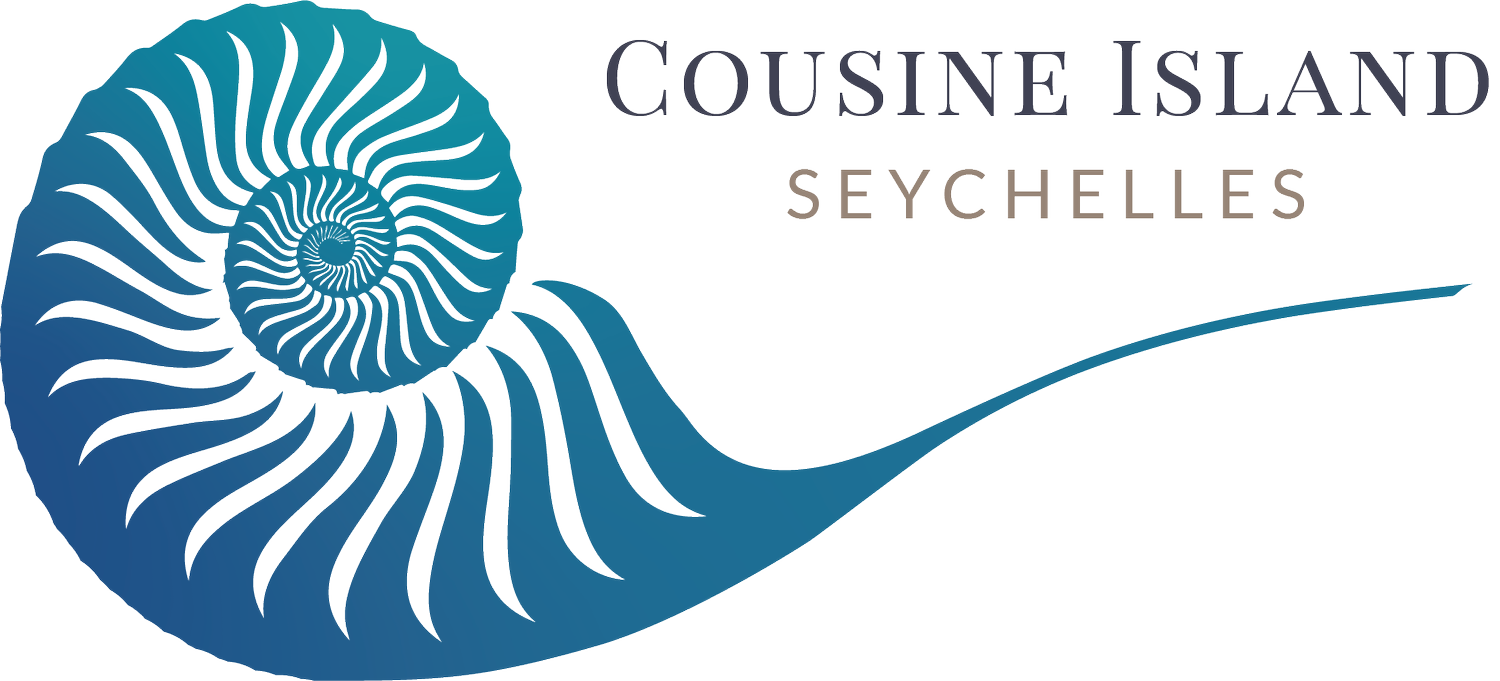تعرف على خفاش الفاكهة في سيشيل الثعالب الطائرة في جزيرة كوزين
خفاش الفاكهة، المعروف غالباً باسم الثعلب الطائر، هو أحد الأنواع المميزة في جزيرة كوزين، ويلعب دوراً حاسماً في الحفاظ على النظام البيئي الحساس في جزيرتنا.
الثعلب الطائر (Pteropus Seychellensis) يتسلق أغصان الأشجار ويأكل ثمار الكاكايا في غابة لا ديغي، سيشيل.
الحيوان الثديي البري الوحيد في جزيرة كوزين
خفاش الفاكهة في سيشيل هو الحيوان الثديي الوحيد الموجود على اليابسة في جزيرة كوزين (باستثناء الموظفين والضيوف). هذه المخلوقات الليلية هي أكبر الخفافيش (والثدييات البرية الأصلية الوحيدة) في سيشيل، حيث يصل طول أجنحتها إلى 1.5 متر. يسهّل حجمها وتباين ألوانها (أجنحة سوداء مع رأس وعنق برتقالي أصفر لامع) التعرف على هذه الثدييات أثناء الطيران وأثناء تجثمها على رؤوس الأشجار.
يمكن رؤية هذا النوع على مدار معظم أيام السنة، ولكنه يتواجد بأعداد أكبر بين شهري نوفمبر وفبراير نظراً لتوفر مصادر الغذاء بشكل أكبر. يمكن العثور عليها وهي تجثم بشكل جماعي في قمم الأشجار خلال حرارة النهار، ولا تخرج إلا في وقت متأخر بعد الظهر لتتغذى. عندما تكون هذه الحيوانات في شجرة تغذيتها، تكون هذه الحيوانات صاخبة للغاية ويمكن سماع صخبها في جميع أنحاء كوزين معظم الليل، مما يعطي الجزيرة شعوراً مخيفاً إلى حد ما.
غالباً ما يمكن رصد خفافيش فاكهة سيشيل في السماء عند الغسق والفجر.
الدور الحاسم في النظام البيئي
تتميز خفافيش الفاكهة بحاسة شم قوية وبصر قوي، وهي آكلة الفاكهة في المقام الأول، وتتغذى على مجموعة متنوعة من الفواكه والأزهار. وهذا النظام الغذائي لا يدعم الخفافيش فحسب، بل يجعلها أيضاً ملقحات أساسية ومشتتة للبذور، مما يساهم بشكل كبير في تجديد أنواع النباتات المحلية. إن دورها في التلقيح حيوي بشكل خاص لتكاثر بعض أشجار الفاكهة والنباتات التي تعتمد بشكل كبير على هذه الخفافيش لنقل حبوب اللقاح من زهرة إلى أخرى.
في جزيرة كوزين، نحن ملتزمون بشدة بحماية هذه المخلوقات الرائعة من خلال جهود الحفظ المتفانية. ويراقب فريقنا عن كثب مجموعات خفافيش الفاكهة عن كثب، لضمان الحفاظ على موائلها الطبيعية وضمان وصول هذه الخفافيش إلى مصادر الغذاء الوفيرة ومواقع آمنة لمبيت الخفافيش. كما أن الحفاظ على موائلها أمر بالغ الأهمية، حيث أنها تدعم النظام البيئي الأوسع من خلال الحفاظ على تنوع الحياة النباتية. وتكتمل جهودنا بالتعاون مع الباحثين الدوليين الذين يدرسون سلوك وبيئة خفافيش الفاكهة. وتوفر هذه الدراسات رؤى قيمة حول أنماط هجرتها وعادات تكاثرها وتفاعلاتها مع الأنواع الأخرى، مما يساعدنا على تطوير استراتيجيات أكثر فعالية للحفاظ عليها.
ساعد زوجان سابقان في إدارة الحفظ في إعادة تأهيل وإطلاق مضرب فاكهة صغير ، أطلقوا عليه اسم Squeaker. ومن المعروف أنه يعود سنويا إلى منطقة مكتب الموظفين في كوزني. ونحن ننتظر بكثير من الترقب وصوله هذا العام.
تتاح لزوار جزيرة كوزين فرصة فريدة للتعرف على الدور الحاسم الذي تلعبه خفافيش الفاكهة في نظامنا البيئي. من خلال برامجنا التعليمية وجولاتنا المصحوبة بمرشدين، يمكن للضيوف مراقبة هذه المخلوقات الرائعة في بيئتها الطبيعية، واكتساب فهم أعمق لسلوكياتها الليلية وأهميتها البيئية. وتساعد قدرة خفافيش الفاكهة على استهلاك كميات كبيرة من الفاكهة والرحيق في نثر البذور، مما يساعد على تجديد مناطق الغابات والحفاظ على صحة النظام البيئي للجزيرة. هذه العملية ضرورية للحفاظ على التنوع البيولوجي الغني لجزيرة كوزين، مما يجعل خفافيش الفاكهة جزءاً لا يتجزأ من تراثنا الطبيعي.
قشط البحر: لماذا تغمس خفافيش الفاكهة نفسها في المياه المالحة
شوهدت خفافيش الفاكهة في سيشيل وهي تقفز في المحيط في الأيام الهادئة بشكل استثنائي. تحلق هذه الخفافيش بالقرب من السطح وتنقض إلى الأسفل لتغمس صدورها في الماء. لا تشرب الخفافيش الماء المالح عند القشط. وعلى الرغم من أن أسباب هذا السلوك غير مفهومة تماماً، إلا أنه يُعتقد أن الخفافيش تفعل ذلك لإزالة الآفات أو زيادة كمية المعادن. لا يقوم بهذه المناورات المحفوفة بالمخاطر إلا عدد قليل من الخفافيش عندما يكون الطقس والبحار هادئة جداً.
إنقاذ الوطواط: مشروع بارادايس سيشيل
تقوم هذه المنظمة غير الربحية المذهلة بإنقاذ الحياة البرية وإعادة تأهيلها وإطلاقها بمستوى عالٍ من الرعاية المهنية والخبرة. الأنواع الرئيسية التي تركز عليها هي ثعلب سيشيل الطائر وسلحفاة منقار الصقر وسلحفاة الدابرا العملاقة.
في المقابلة مع "جيف مور" من برنامج "اكتشف الحيوانات" أدناه، تناقش مؤسِّسة المشروع تمارا دراير التهديدات التي تواجه خفافيش الفاكهة مثل الاصطدام بالبنية التحتية والافتراس البشري لـ "كاري سوسوري" أو كاري خفاش الفاكهة الذي يعتبره البعض طعاماً شهياً. لدى مشروع بارادايس برنامج رائع وناجح لإعادة تأهيل خفاش الفاكهة في سيشيل، خاصة بالنسبة للجراء التي انفصلت عن أمهاتها.
الجهود المستمرة للحفاظ على خفاش الفاكهة
لا تتعلق حماية خفافيش الفاكهة بالحفاظ على نوع واحد فقط؛ بل تتعلق بالحفاظ على التوازن المعقد للنظام البيئي لجزيرتنا. تتماشى جهودنا للحفاظ على البيئة مع التزامنا الأوسع نطاقاً بالسياحة المستدامة والإشراف البيئي. نحن نؤمن أنه من خلال تثقيف ضيوفنا حول أهمية الحفاظ على البيئة، يمكننا أن نلهمهم تقديراً أكبر للعالم الطبيعي ونشجع الممارسات السياحية المسؤولة.
كجزء من مبادراتنا للحفاظ على البيئة، ندعو ضيوفنا للمشاركة في الأنشطة التي تسلط الضوء على أهمية خفافيش الفاكهة والحياة البرية الأخرى في الجزيرة. من خلال الانضمام إلينا في هذه الجهود، يمكن للزوار المساهمة في الحفاظ على هذه الأنواع المذهلة والنظام البيئي الأوسع. معاً، يمكننا أن نضمن أن تظل جزيرة كوزين ملاذاً لخفافيش الفاكهة ونموذجاً للمحافظة عليها. ستساعد أعمالنا الجماعية اليوم في حماية التراث الطبيعي لسيشيل، مما يضمن استمرار الأجيال القادمة في الاستمتاع بالجمال الفريد والتنوع البيولوجي لجزيرة كوزين.
ساعدنا في الحفاظ على التنوع البيولوجي
يمكنك المساهمة في مهمتنا للحفاظ على البيئة ببساطة عن طريق زيارة الجزيرة، حتى ولو ليوم واحد فقط. نحن ندعو ضيوفنا للمشاركة في جهودنا المستمرة للحفاظ على البيئة مثل زراعة الأشجار المحلية والمشي بصحبة مرشدين للحفاظ على البيئة وتجارب تربية السلاحف والرحلات إلى الجزر غير المأهولة والمحمية حول الأرخبيل. حتى لو لم تغادر الشاطئ أبداً أو كنت تستمتع فقط بمشاهدة حياة الطيور المذهلة، فإنك تساعد في استعادة البيئة والحفاظ عليها من خلال السياحة البيئية. تحقق من تقويمنا البيئي للتخطيط لزيارتك أو استأجر الجزيرة بأكملها للاستمتاع بتجربة جزيرة خاصة لا مثيل لها.




